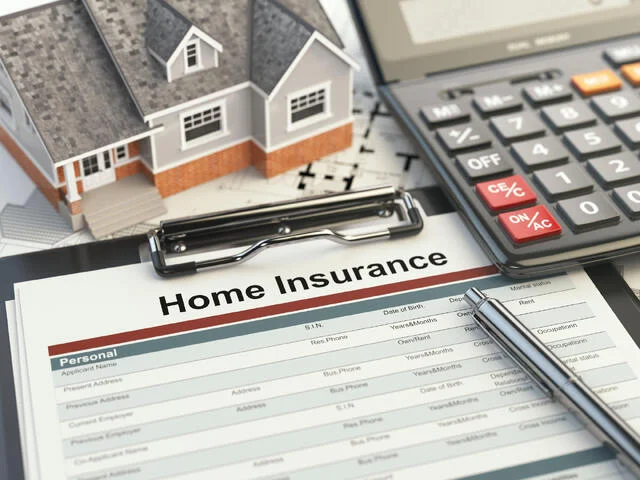Home insurance is a must-have financial safety net that shields owners from unplanned events like fire, theft, natural disasters, and legal claims. In the event that you have to move because of a covered event, it covers the construction of the home, your goods, and extra living costs. Homeowners must have insurance on their homes if they want to protect their property and keep their money from going down the drain. Homeowners can make smart choices about their insurance needs if they know about the different types of coverage, how plans work, and ways to lower their prices.
Different kinds of home insurance
There are different kinds of home insurance plans, and each one protects you in different ways. A basic home insurance policy covers a lot of different things to make sure you are financially safe.
Dwelling coverage is the main part of home insurance. It protects the structure of the house, like the walls, roof, and base, from certain risks, like fire, weather, and theft. This policy makes sure that people can fix or rebuild their homes if they get damaged. The housing coverage amount should be based on how much it would cost to rebuild the house, not just how much it is worth now.
Personal property coverage keeps things like furniture, electronics, clothes, and tools that belong to homes safe from damage or theft. This coverage covers things inside the house as well as personal items taken outside the house. To make sure they have enough coverage, homeowners may need to make a list of their belongings and figure out how much they are worth.
Liability protection pays for the homeowner’s court fees if someone gets hurt on their property or if they are found to be at fault for damage to someone else’s property. This insurance helps pay for things like hospital bills, court costs, and possible settlements. When accidents happen on the land, like when someone slips and falls, liability security is very helpful.
If an approved disaster makes your home unlivable, additional living costs (ALE) coverage pays for food, temporary housing, and other things you need to get by. This makes sure that homeowners and their families don’t have to worry about money issues while their house is being fixed up or rebuilt. Most of the time, the limits on ALE coverage are a portion of the housing coverage amount.
Why home insurance is important
Home insurance gives people peace of mind by keeping them from losing a lot of money because of something unexpected. If landlords didn’t have insurance, they would have to pay for repairs, replacements, and court fees out of their own pockets, which can be very expensive.
A lot of the time, mortgage lenders make borrowers get insurance as a condition of lending money. Since the property is used as collateral for the mortgage, lenders want to make sure it is safe from any possible risks. People who own homes still need insurance to protect their property, even after they’ve paid off their debt.
Homes can get a lot of damage from natural events like storms, wildfires, and floods. Some events are covered by normal plans, but others might need extra coverage. People who live in areas with a lot of natural disasters should think about getting extra insurance to cover things like earthquakes and floods.
house insurance does more than just protect the structure of your house. It also helps lessen the financial impact of theft and damage. Personal property coverage makes sure that homeowners can get their money back if thieves break in and steal expensive things. Liability protection also protects homes from claims that could happen if they hurt someone or damage someone else’s property without meaning to.
How to Pick the Best Home Insurance
A lot of things need to be carefully thought through in order to choose the right home insurance policy. Homeowners should think about how much coverage they need based on how much their home and things are worth. If you want to rebuild your home after a total loss, you should make sure that the housing coverage amount is enough. If you don’t have enough insurance on a building, you may have to pay a lot of money during a claim.
Another important part of picking the right policy is understanding expenses. A deductible is the amount of money that a renter has to pay out of pocket before their insurance starts to pay. Most of the time, higher deductibles mean lower rates, but renters should make sure they can pay the deductible amount if they need to file a claim.
Also, the policy’s limitations should be carefully looked over. There are some risks that standard home insurance might not cover, like floods, earthquakes, or sewer backups. People who live in places with a lot of crime may need to buy extra references or different plans to make sure they are properly protected.
You should also think about the insurance company’s image and how stable its finances are. People who own their own homes should pick an insurance company that has good financial scores, good reviews from customers, and a reliable claims process. Homeowners can find the best mix between cost and coverage by getting quotes from more than one insurance company.
Tips on How to Get Cheaper Home Insurance
Even though home insurance is necessary, there are a few things people can do to lower their rates. When you bundle your home insurance with other plans, like car insurance, you may be able to get big savings. A lot of insurance companies offer savings for buying more than one type of coverage from the same company.
Another good way to lower your insurance costs is to make your house safer. Homeowners can get savings for adding things like security systems, smoke alarms, door locks, and video cameras. Insurance companies often give discounts to homeowners who take steps to keep their homes safe from theft and damage.
Keeping your credit score high can also affect how much your home insurance costs. Credit scores are used by insurers to set rates because people with better credit scores are usually seen as less of a risk as clients. If a homeowner pays their bills on time, lowers their debt, and uses credit wisely, they can raise their credit score.
If you raise the deductible, your rates may go down. But people who own their own homes should make sure they have enough saved to cover the cost if they need to make a claim. If you choose a bigger deductible, your monthly costs will be lower, but you will have to pay more out of pocket if you have a loss.
It is important to check your home insurance contract on a regular basis to make sure you are getting enough coverage. When homeowners make changes to their homes, their insurance plans should be updated to reflect those changes. Insurance reviews every so often also let homes compare rates and move companies if better coverage options come up.
How to Avoid Making These Mistakes When Buying Home Insurance
A lot of people make mistakes when they buy insurance, which can mean they don’t get enough coverage or have to pay more. Underinsuring the home is a mistake that many people make. Some people choose smaller coverage amounts to save money on bills, but if a big accident happens, they may have to pay a lot of money.
Another mistake is not knowing what the coverage doesn’t cover. Some people think that their basic insurance covers all natural disasters, but they find out that they need extra coverage for some risks. People can avoid coverage gaps by going over the policy details and talking with an insurance agent about the different types of coverage.
Another common mistake is not changing the insurance after making big changes to the house. The value of a home can go up with improvements like new roofs, kitchen remodels, and room adds. If the insurance policy isn’t changed to reflect this, the housing coverage might not be enough to cover the cost of redoing the home that has been improved.
If you don’t check quotes from several insurance companies, your rates may go up. People who shop around for home insurance can find better coverage choices and lower rates. Before you decide, it’s a good idea to get quotes from at least three different companies.
What’s Next for Home Insurance
The home insurance business is changing as technology improves and weather patterns shift. AI and data analytics are being used more and more by insurers to evaluate dangers and make plans more specific to each person. Insurance plans are starting to include smart home devices like fire alarms and water leak monitors in them so that risks can be tracked in real time and prices may go down.
Changes in the climate are also having an effect on house insurance. When there are more extreme weather events, insurers change their rules to reflect the higher risks. Changes may be made to the types of coverage needed and the payment rates for homeowners in areas that are prone to disasters. To make sure they are best protected, residents should keep up with changes in the business and new insurance policies.
In conclusion
Getting home insurance is a smart investment that will protect your finances in case something bad happens. Homeowners can get full safety for their property by learning about the different types of coverage, picking the right insurance, and taking steps to lower their costs. Homeowners can get the best coverage at a price they can afford by checking their insurance on a regular basis, getting quotes from different companies, and keeping up with changes in the industry. Homeowners can get long-term financial security and peace of mind by making smart choices about their home insurance.




